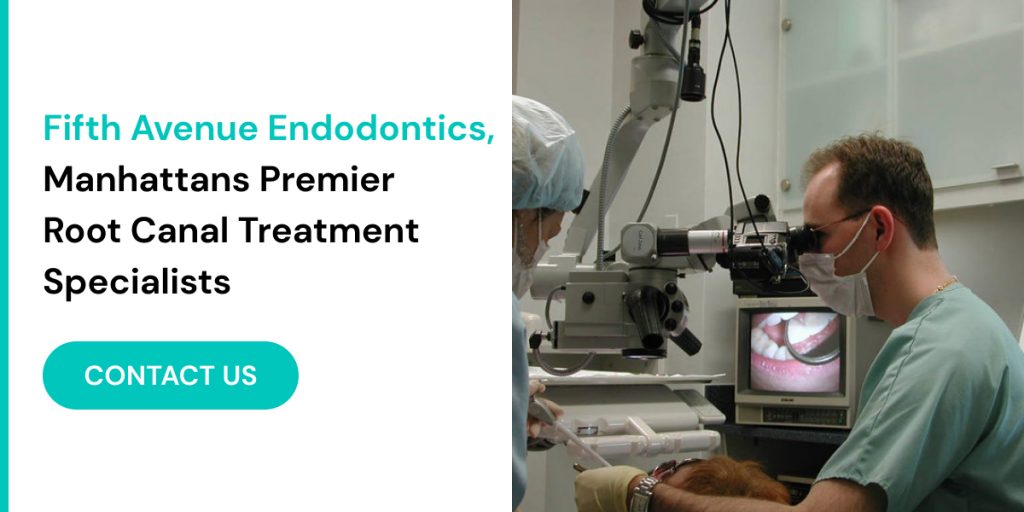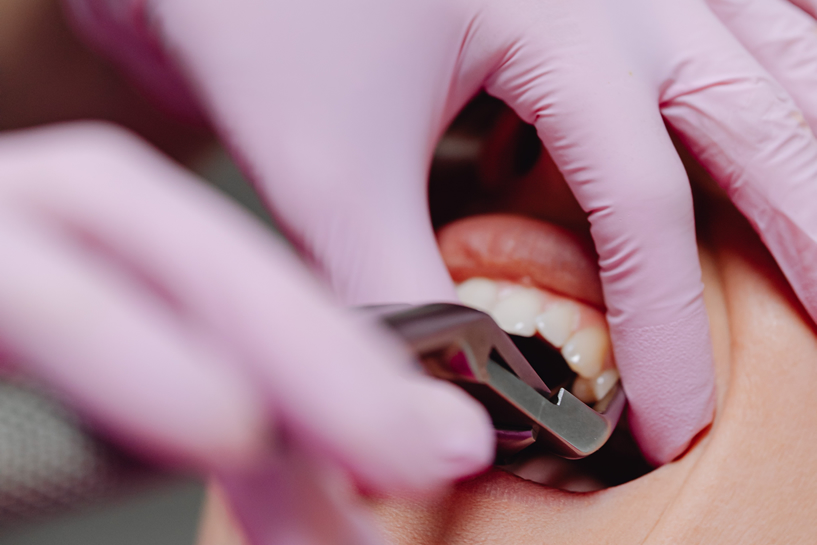For many Manhattanites, maintaining a healthy smile is a top priority. But what happens when a seemingly ordinary toothache transforms into something more serious, potentially even impacting your sinuses? This can be a confusing and concerning situation. The good news is that you’re not alone. Root canal infections are a relatively common dental issue, and in some cases, a standard root canal treatment might not be the end of the story.
This blog post dives into the lesser-known connection between root canal issues and sinus infections. We’ll explore how root canal surgery treatment in Manhattan can be a valuable tool for managing these problems and achieving long-term oral health. Here at Fifth Avenue Endodontics, Dr. Iofin, a leading endodontist with extensive experience, offers his insights on this topic. Dr. Iofin is dedicated to providing his patients with the most advanced and effective treatments available, ensuring a comfortable and successful outcome.
Understanding the Link Between Root Canals and Sinuses: A Closer Look
Our sinuses are air-filled cavities located in the facial bones around the nose and eyes. These cavities play a crucial role in several bodily functions, including filtering dust and allergens from inhaled air, regulating humidity within the nasal passages, and even contributing to voice resonance. The upper back teeth, molars and premolars, reside in close proximity to these cavities, separated only by a thin layer of bone. This close anatomical relationship between the teeth and sinuses is what creates the potential for a root canal infection to impact your sinuses.
When an infection develops in the tooth pulp, the soft tissue core containing nerves and blood vessels, it can spread through the tooth’s root canals and into the surrounding jawbone. If left untreated, this infection can continue to progress and eventually reach the maxillary sinus, located directly above the upper back teeth. The maxillary sinus is the largest of the four paranasal sinuses and shares a common wall with the roots of the upper molars and premolars.
The spread of infection from a tooth to the sinus can occur in a few ways. Bacteria can travel directly through microscopic channels in the jawbone connecting the infected tooth to the sinus cavity. Alternatively, the infection can cause inflammation and weakening of the bone wall separating the tooth and sinus, allowing bacteria to breach this barrier. In some cases, a dental procedure like a root canal treatment itself, though intended to be a corrective measure, can inadvertently create a pathway for infection to enter the sinus if the sinus membrane is accidentally punctured during the procedure.
The symptoms of a sinus infection caused by a root canal issue can be quite similar to those of a regular sinus infection. These common symptoms include:
- Facial pain and pressure, often concentrated on the cheekbone or around the eyes on the side of the affected tooth.
- Difficulty breathing through the nose, caused by inflammation and swelling of the nasal passages.
- Congestion, a feeling of stuffiness in the nose due to mucus buildup.
- Runny or stuffy nose, with discharge that may be clear, yellow, or green depending on the severity of the infection.
- Facial swelling, particularly noticeable in the area around the infected tooth and potentially extending to the cheek or eye.
However, there’s a key distinction between a sinus infection and a root canal-related sinus issue. A typical sinus infection is often caused by viruses or allergies and frequently responds well to treatments with antibiotics and decongestants. Conversely, a sinus infection stemming from a root canal infection won’t respond to these medications because the source of the bacterial contamination lies within the tooth itself. This is why it’s crucial to seek professional dental evaluation if you experience persistent sinus symptoms alongside dental problems like toothaches, sensitivity, or swelling.
By understanding the anatomical connection between your teeth and sinuses, you can be more aware of the potential complications that can arise from untreated dental infections. Early diagnosis and intervention by a qualified dentist or endodontist are essential to prevent the spread of infection and the development of more serious problems affecting your oral and sinus health.

When Standard Root Canal Treatment Falls Short: Exploring Root Canal Surgery
A standard root canal treatment is a highly effective procedure for eliminating infection and preserving a tooth. During the procedure, the dentist accesses the infected pulp chamber through the crown of the tooth, removes the infected tissue and nerves, cleans and disinfects the canals, and then seals the area with a filling and crown. However, in some situations, a standard root canal might not be enough to fully address the problem. Here’s where Manhattan root canal surgery, also known as an apicoectomy, becomes a valuable option offered by Dr. Iofin at Fifth Avenue Endodontics.
There are several scenarios where root canal surgery might be necessary:
- Extensive Infection: If the infection has spread significantly beyond the root tip and into the surrounding jawbone, a standard root canal may not be able to remove all the infected tissue. Root canal surgery allows for a more precise and thorough cleaning of the infected area by directly accessing the root tip and surrounding bone.
- Complex Root Canal Anatomy: The root canals of some teeth can have a complex anatomy with multiple branches or narrow canals. This complexity can make it difficult for a dentist to thoroughly clean and disinfect all areas during a standard procedure. Root canal surgery provides a clearer view of the root anatomy, allowing Dr. Iofin to effectively clean and disinfect even the most intricate canals.
- Persistent Infection: In some cases, a previous root canal attempt may not have been entirely successful in eliminating the infection. This can happen if residual bacteria remain within the canals or if the initial cleaning and sealing weren’t sufficient. Root canal surgery allows Dr. Iofin to revisit the treated area, remove any remaining infected tissue, and perform a more comprehensive cleaning and sealing procedure.
Making the Decision for Root Canal Surgery
If you’re experiencing persistent tooth pain, swelling, or drainage following a root canal, or if you have a sinus infection potentially linked to a dental issue, Dr. Iofin at Fifth Avenue Endodontics will conduct a comprehensive examination to determine the source of the problem. Through advanced diagnostic tools and techniques, Dr. Iofin can assess the extent of the infection and the anatomy of your root canals. Based on this evaluation, he will discuss all available treatment options with you, including the potential benefits and risks of root canal surgery.
Ultimately, the decision to proceed with root canal surgery is a collaborative one between you and Dr. Iofin. By understanding the limitations of a standard root canal in certain situations and the advantages that root canal surgery can offer, you can make an informed choice about the best course of treatment to restore your oral health and achieve a pain-free smile.
How Root Canal Surgery Offers Relief from Sinus Issues
Root canal surgery, also known as an apicoectomy, is a minimally invasive procedure performed by a skilled endodontist like Dr. Iofin at Fifth Avenue Endodontics. This targeted approach offers significant benefits for resolving sinus infections stemming from dental issues. Here’s how root canal surgery tackles the root (pun intended) of the problem:
- Eliminating the Bacterial Culprit: During the surgery, Dr. Iofin meticulously removes the infected root tip, the primary source of the bacterial contamination that has spread to your sinus cavity. By removing this infected tissue, the surgery effectively eliminates the ongoing bacterial assault on your sinuses, allowing the healing process to begin.
- Promoting Healing and Regeneration: Once the source of infection is addressed, the surrounding bone and tissues can begin to heal. In some cases, Dr. Iofin might utilize a small bone graft to promote bone regeneration in the area where the infected root tip was removed. This additional step encourages faster healing and creates a stronger foundation for the long-term health of the tooth and surrounding bone.
- Alleviating Sinus Pressure and Pain: With the infection eliminated and the healing process underway, the pressure and pain you’ve been experiencing in your sinuses will begin to subside. This relief is often noticeable quite quickly after the surgery, allowing you to breathe easier and experience a significant improvement in your overall comfort.
Root canal surgery offers a lasting solution to sinus infections caused by dental problems. By addressing the underlying issue effectively, this procedure not only resolves your current discomfort but also prevents future complications that could arise from a persistent infection.
Beyond Relief: The Lasting Advantages of Root Canal Surgery for Sinus Infections
Choosing root canal surgery to address a sinus infection linked to a dental issue offers a multitude of benefits that extend far beyond immediate symptom relief. Here’s a closer look at the lasting advantages this procedure provides:
- Preserving Your Natural Smile: Natural teeth are irreplaceable for optimal oral function and aesthetics. Root canal surgery prioritizes saving your tooth by directly targeting the infected area, allowing you to maintain the functionality for chewing and speaking without compromising the natural beauty of your smile. This eliminates the need for extractions and potential replacements like implants or bridges, which can be more complex and costly procedures.
- Promoting Long-Term Oral Health: A successful root canal surgery eliminates the root cause of the infection, preventing further damage to the tooth structure and surrounding bone. This safeguards the health of neighboring teeth and tissues, contributing to a stronger and more stable foundation for your overall oral health. By addressing the infection before it spreads, you can minimize the risk of future dental problems and the associated costs of treatment.
- Preventing Serious Complications: Left untreated, a root canal infection can escalate into serious complications. These can include bone loss in the jaw, the formation of pus-filled abscesses, and even the potential for the infection to enter the bloodstream and impact your overall health. Root canal surgery effectively eliminates the infection at its source, preventing these potentially dangerous consequences and ensuring your long-term well-being.
- Enhanced Quality of Life: Sinus infections caused by dental issues can significantly impact your daily life. Facial pain, pressure, congestion, and difficulty breathing can make it challenging to function comfortably. Root canal surgery addresses the root cause of these symptoms, allowing you to experience significant relief and regain a better quality of life. This translates to improved sleep, a more enjoyable eating experience, and a greater sense of overall well-being.
By investing in root canal surgery, you’re not just tackling a current issue – you’re making a proactive choice to safeguard your oral and overall health for the long term.

Seeking Relief in Manhattan: Root Canal Surgery for Lasting Solutions
If you’re experiencing a combination of persistent sinus issues and dental problems like toothaches, sensitivity, or swelling, you’re not alone. These seemingly unconnected symptoms might point to an underlying dental infection. Don’t hesitate to seek professional evaluation in Manhattan. Here at Fifth Avenue Endodontics, Dr. Iofin, a leading endodontist, offers a comprehensive approach to diagnose the root (pun intended) cause of your discomfort and recommend the most appropriate treatment, including Manhattan root canal surgery if necessary.
Early diagnosis and intervention are crucial to preventing complications associated with root canal infections. Through a thorough examination at Fifth Avenue Endodontics, Dr. Iofin will utilize advanced diagnostic tools like digital X-rays and cone beam scans to pinpoint the source of the infection. This meticulous approach ensures a precise diagnosis and allows Dr. Iofin to discuss all available treatment options with you, including the potential benefits and risks of root canal surgery.
Fifth Avenue Endodontics prioritizes patient comfort throughout the entire treatment process. Our state-of-the-art facility features advanced technology and techniques to ensure a minimally invasive and comfortable root canal surgery experience. Dr. Iofin’s expertise and gentle touch will help alleviate any anxieties you may have about the procedure.
By choosing Fifth Avenue Endodontics for your root canal surgery needs, you’re not just choosing a solution for your current discomfort; you’re investing in your long-term oral health and overall well-being. Remember, a successful root canal surgery can not only resolve your sinus issues and restore a pain-free smile, but it can also prevent future complications and contribute to a healthier you. Schedule an appointment with Dr. Iofin today and take the first step towards lasting relief and a brighter smile.

